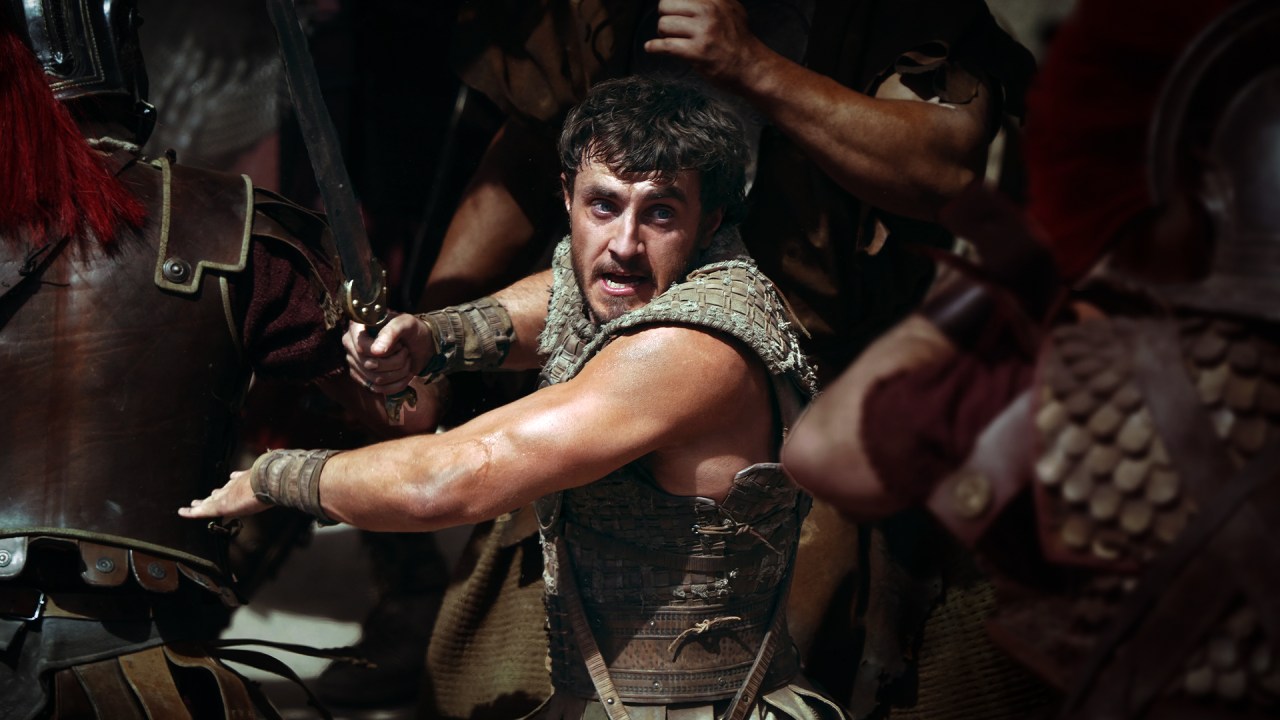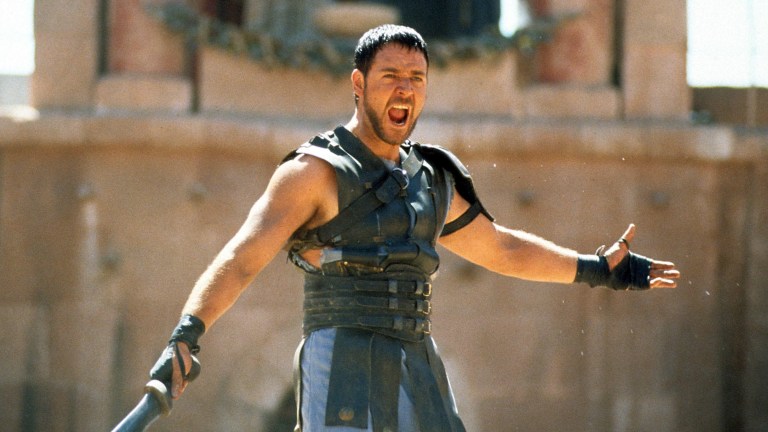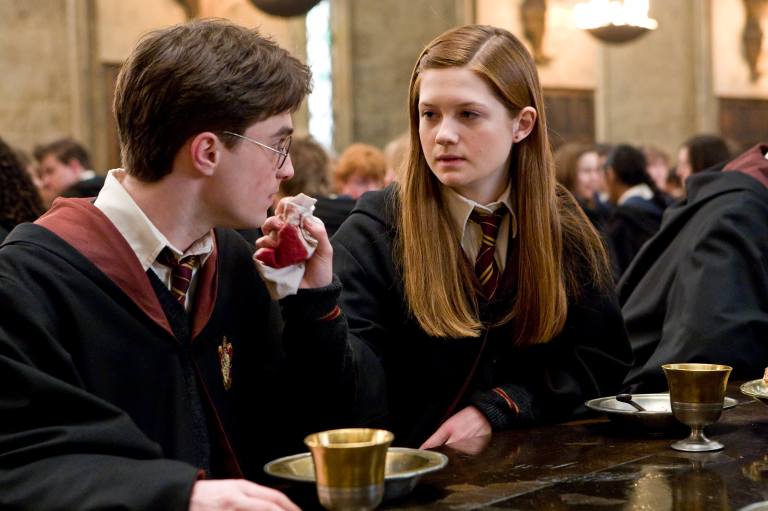
Review: ‘Gladiator II’ Ascends To Bigger And Louder Heights – But It Isn’t Better
Gladiator II strikes hard, though it relies too much on the past rather than putting trust in the future.
Ridley Scott’s Gladiator fought its way into cinema history as one of the greatest films of all time. The historical epic ended on a conclusive – albeit sad – note, requiring no further sequel; yet, here we are 24 years later with Gladiator II. Scott returns to guide this follow-up through a colosseum of doubters, but does the film defy the odds to establish itself as a worthy successor to the 2000 original or crumble under the weight of expectation? Mild spoilers for Gladiator II follow.
‘Gladiator II’ walks in its predecessor’s footsteps – for better or worse
Paul Mescal’s Lucius Verus leads Gladiator II. Away from Rome and his mother, Lucilla (Connie Nielsen), for many years, he lives in Numidia with his wife, Arishat (Yuval Gonen). His peaceful existence ends after the Roman army, led by General Marcus Acacius (Pedro Pascal), take over Numidia, kill Arishat, and enslave Lucius. The crafty Macrinus, portrayed by Denzel Washington at the peak of his powers, sees potential in Lucius and chooses him as a gladiator to appear in the games orchestrated by the petulant emperors Caracella (Fred Hechinger) and Geta (Joseph Quinn).
Much like the story of Russell Crowe’s Maximus Decimus Meridius, the death of Lucius’ wife breaks his spirit but makes him dangerous. He fights like a warrior with nothing to lose, because he has nothing and dreams only of being reunited with his wife in death. Like Maximus, his journey requires him to find purpose once again while trying to honor the dream that Marcus Aurelius (Richard Harris) once had for Rome.
Of course, the cat has been out the bag for a while that Lucius is really Maximus’ son, adding another dimension to the concept of a child fulfilling their parent’s destiny. However, Ridley Scott leans way too heavily into the parallels between Lucius and Maximus. At times, it almost feels like a remake of the original rather than a sequel as Mescal does his best imitations of Crowe. This comes across as aggressive fan service and provides Lucius with a rather unremarkable narrative arc in comparison to his late father.
The pomp and circumstance delight
With a reported production budget of over $300 million, Gladiator II looks the part. Everything is bigger and grander, with no cost spared to turn the film into a larger-than-life spectacle that symbolizes the vanity of the Roman Empire under Caracella and Geta. From sharks to rhinos – though some historians debate the inclusion of these animals in the Colosseum – a good chunk of the budget went into realizing these spectacular animals on screen.
One area in which Gladiator II improves over its predecessors is in the action scenes. Whether it’s the gimmicked contests with the sharks or killer baboons, or technically proficient hand-to-hand affairs, the battles never leave the viewer disappointed as they up the ante of violence. In fact, Gladiator II pushes the brutality level through heads and limbs flying around like it’s the final round of Mortal Kombat.
Combined with this is the grandiose nature of Rome. The enhancements in technology and the bigger budget aid Ridley Scott and cinematographer John Mathieson to give the city its unique personality and make it a character within its own right. Pay close attention to the lighting and color grading of the scenes, as these act as distinct ways to represent the changing moods of Rome in pivotal moments in the story.
Macrinus outshines everyone in a movie in which most characters feel underutilized
It should come as a surprise to absolutely no one that Denzel Washington chews up every scene as Macrinus. His character’s intentions keep everyone guessing as Washington dances across the spectrum of good and bad. Up until the very end, no one knows how to categorize him. The byproduct of this is that Washington casts a major shadow over his fellow supporting actors.
Gladiator II becomes mostly about Lucius and Macrinus by default, with everyone else disappearing into the background. The biggest disappointment here is Pedro Pascal’s Marcus Acacius. While Pascal plays Acacius with the right tone of being a powerful general jaded by what Rome has become, his character deserved better treatment and evolution in Peter Craig and David Scarpa’s script. Instead, he becomes a narrative means to an end when he could have had a more meaningful role.
This is symbolic of Gladiator II overall. It goes large and loud, but it chooses fan service over progress every single time. Make no mistake about it: It’s a good movie with more pluses than negatives, though it won’t be remembered as a classic like its predecessor. Don’t be surprised if everyone forgets about it within a few weeks’ time.










